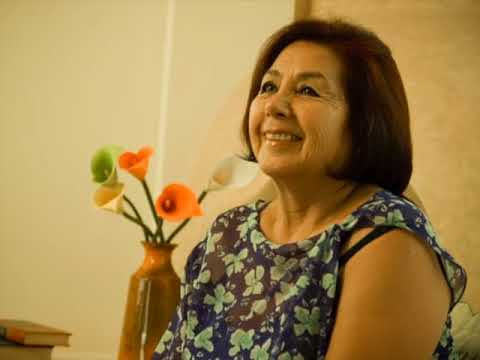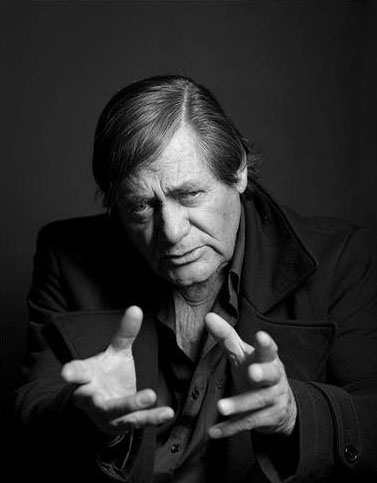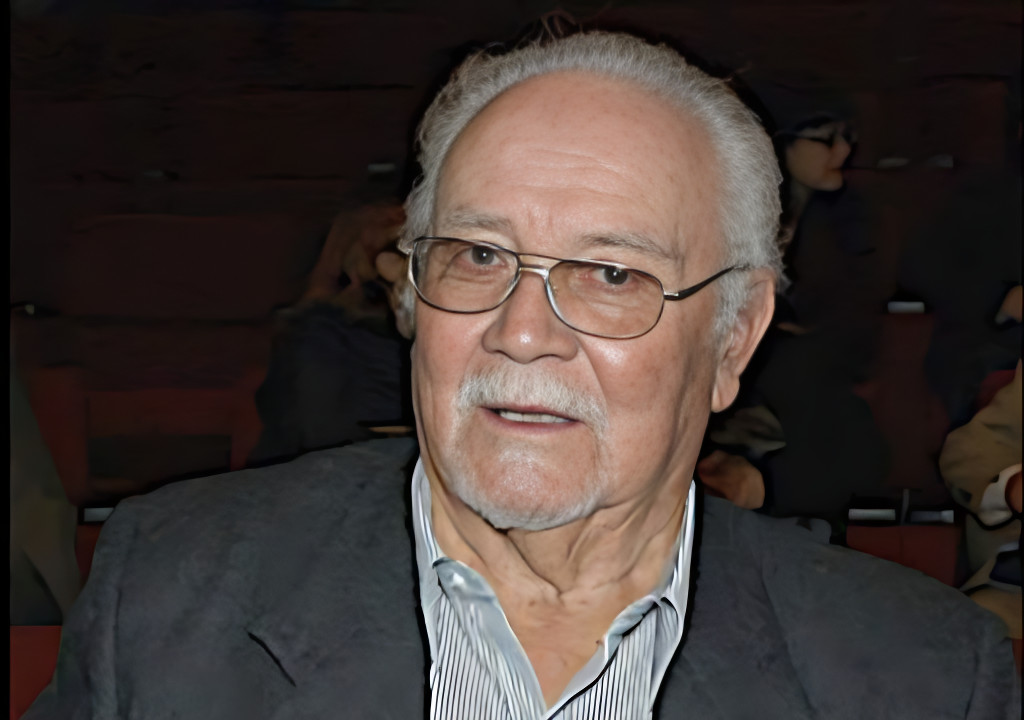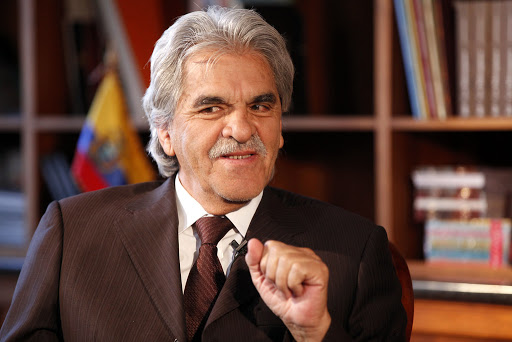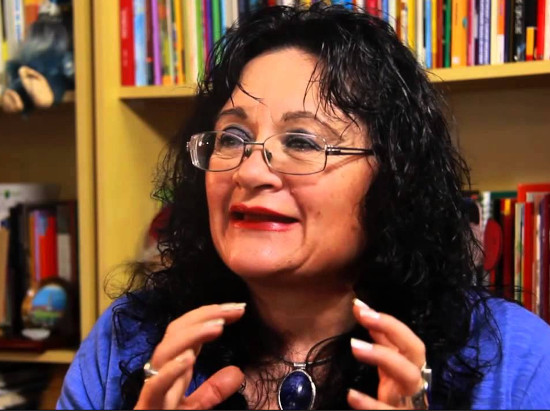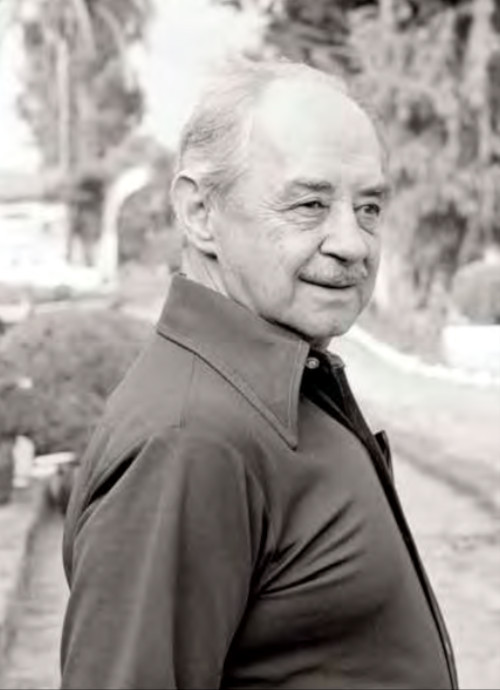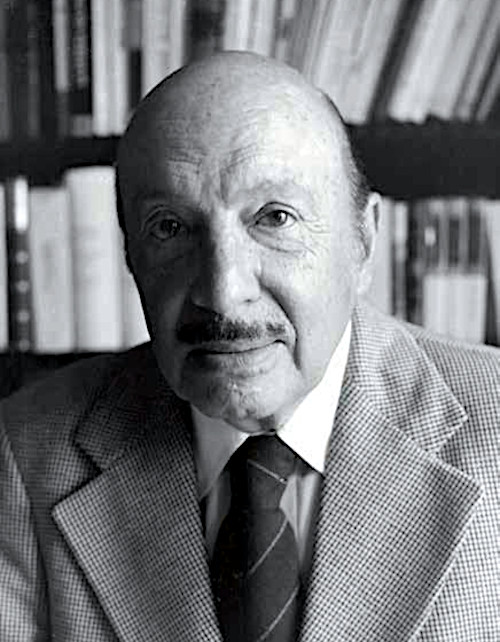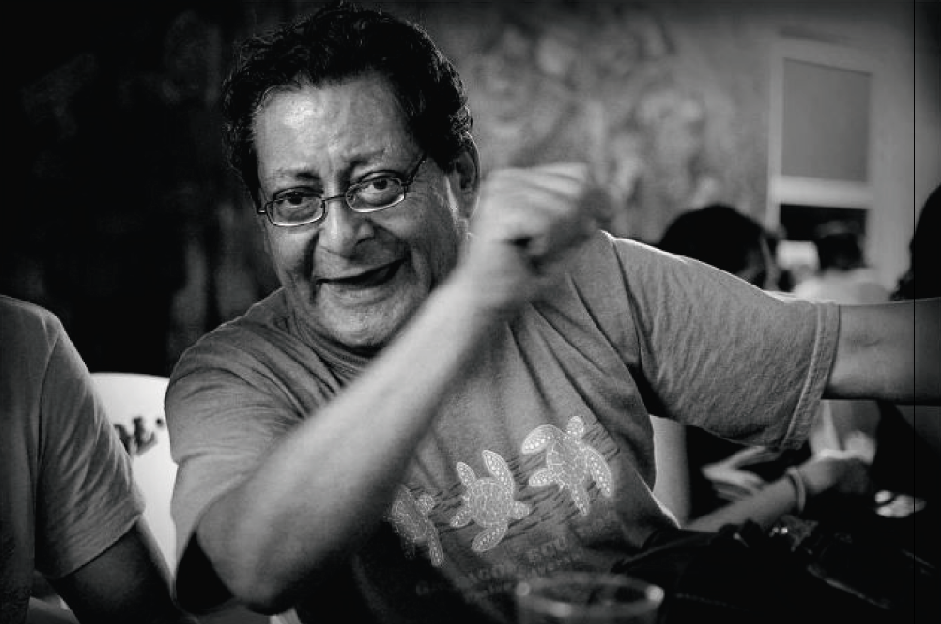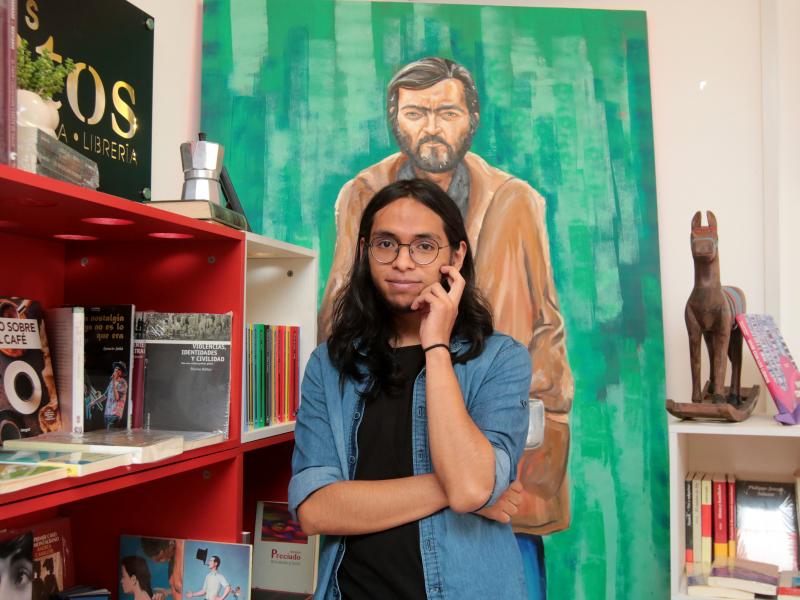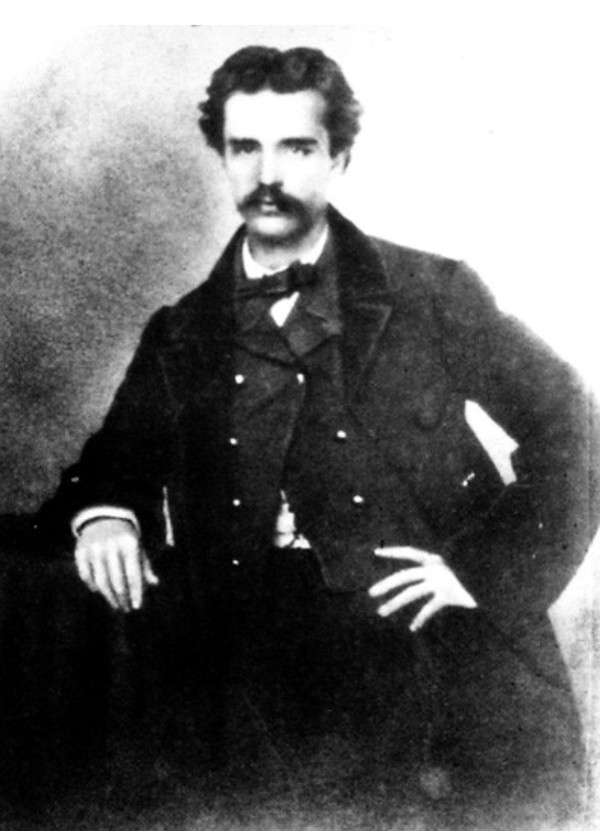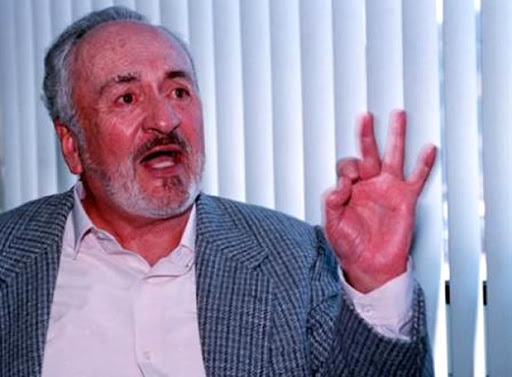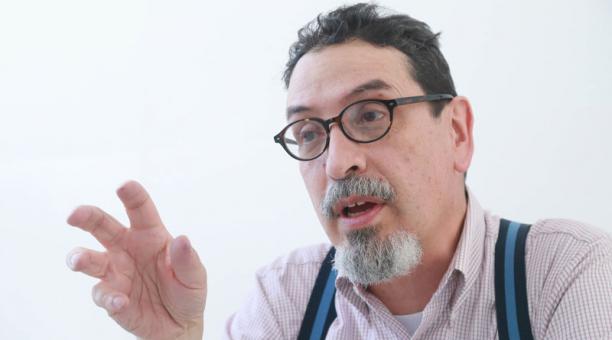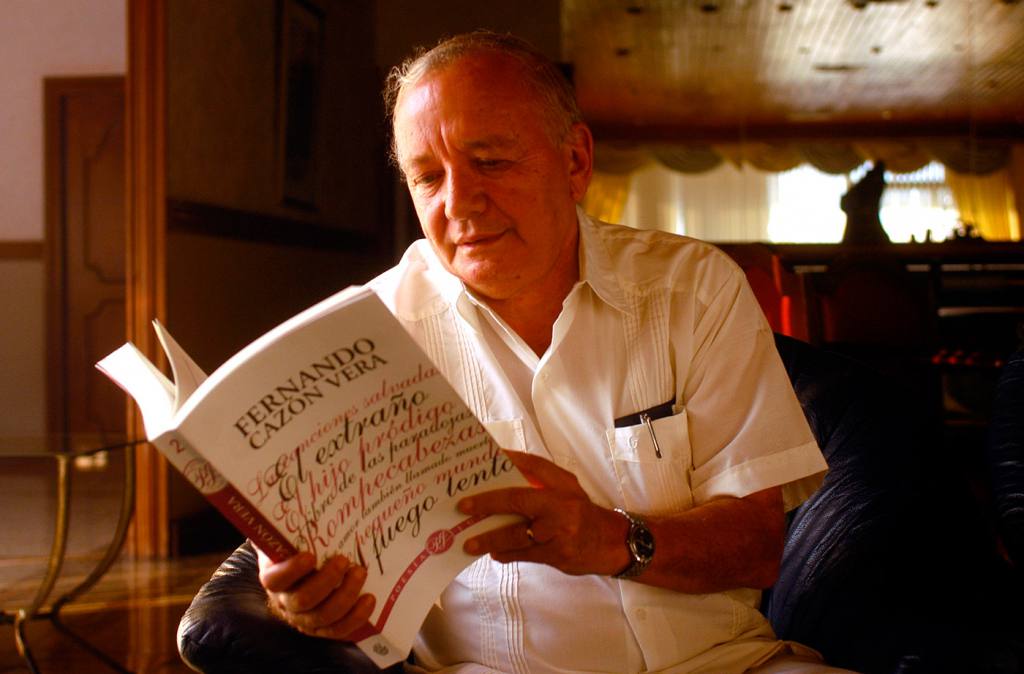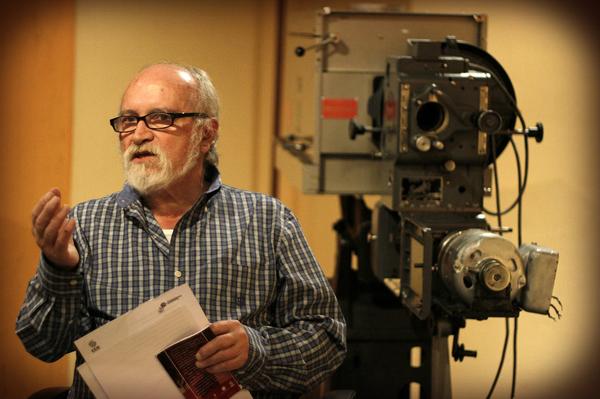Ana María Iza (Quito, 1941-2016) was an Ecuadorian poet, she worked as a journalist, specifically on the radio. Her poems appeared in some of the most important poetry anthologies of Ecuador and Latin America, such as: Poesía Viva del Ecuador (1990), Diccionario de literatura española e hispanoamericana (1993), Joyas de literatura ecuatoriana (1993), and Between the silence of voices (1997). In 2015 she was honored in Poetry in Parallel Zero, an event that brings together great figures of literature to Ecuador for a week. In 2016 she was honored with a medal by the National Assembly of Ecuador.
Continue reading “Ana María Iza”Category: Writers from Quito
Antonio Ordóñez
Antonio Ramiro Ordóñez Andrade (Quito, January 23, 1943) is a poet, dramaturg, theater actor and director. He was a founder of the “Tzántzicos” group (1961-1969), actor and director of the Ensayo theater, actor of the Ecuadorian popular theater, director of the School of Dramatic Art of the House of Ecuadorian Culture (2 years), director of the School of Theater of the Faculty of Arts from the Central University of Ecuador (11 years), professor at the Faculty of Arts of the Central University (32 years), member of the Ecuadorian Institute of Theater, member of the General Board of the House of Ecuadorian Culture. Many of his early poems were published in Pucuna magazine in the 1960s. In 2014 the House of Ecuadorian Culture in Quito published his only book of poetry El demonio en el fondo de los ojos.
Continue reading “Antonio Ordóñez”Alfonso Murriagui
Alfonso Murriagui Valverde (Quito, 1929-January 19, 2017) was an Ecuadorian poet, fiction writer, dramatist, journalist, and an exponent of communism. Murriagui‘s poetry is marked by political and revolutionary ideology. For several years he was an editor of En Marcha, the official weekly periodical of the Central Committee of the Communist Marxist Leninist Party of Ecuador. In 1961 he was a founding member of the Tzántzico group of the 1960s. That same year he began writing for Pucuna magazine. In 1965 he became vice president of the Association of Young Writers of Ecuador. He was the director of public relations of the Luís Vargas Torres de Esmeraldas Technical University from 1972-1976. He was the director of cultural diffusion of the Philosophy Department of the Central University of Ecuador from 1985-1992). During the last 15 years of his life he was the editor of the culture section of the leftist weekly periodical Opción.
Continue reading “Alfonso Murriagui”Raúl Pérez Torres
Raúl Pérez Torres (Quito, May 11, 1941) is an Ecuadorian writer and cultural promoter. His short story collection En la noche y en la niebla won the Casa de las Américas Prize (Havana, Cuba) in 1980, one of Latin America’s oldest and most prestigious literary awards. In 1995 Pérez’ short story Sólo cenizas hallarás won the Juan Rulfo Prize (France) and the Julio Cortazar Prize. From 2000-2019, Pérez served as the president of the Ecuadorian House of Culture in Quito, and from 2017-2019 served as Ecuador’s Minister of Culture.
Continue reading “Raúl Pérez Torres”Leonor Bravo Velásquez
Leonor Bravo Velásquez (Quito, January 8, 1953) is an Ecuadorian children’s and young adult author. She has published 54 books, 44 of which are stories and novels that are available in various countries throughout Latin America and the United States, as well as major libraries specializing in children’s literature around the world. Her books “La biblioteca secreta de la Escondida” and “Dos cigüeñas, una bruja y un dragón,” are on the IBBY Honor List (International Board on Books for Young People).
Continue reading “Leonor Bravo Velásquez”Raúl Andrade Moscoso
Raúl Andrade Moscoso (Quito, October 4, 1905 – Quito, September 10, 1983) was an Ecuadorian journalist and dramatist. As a journalist, Andrade travelered throughout Mexico and Colombia, where he worked for the newspaper El Tiempo (Bogota, Colombia), and published his book “La internacional negra en Colombia,” a collection of articles on the crisis in Colombia. He was also the editor of El Comercio from 1954-1982. As a dramatist, Andrade published “Suburbio,” a romantic evocation on the suburbs of Quito. In 1983 the president of Ecuador conferred on Andrade the Eugenio Espejo Prize in Culture.
Continue reading “Raúl Andrade Moscoso”Gustavo Vásconez Hurtado
Gustavo Vásconez Hurtado (Quito, April 3, 1911 – Quito, 1988) was an Ecuadorian novelist, biographer and diplomat. He returned to Ecuador in 1931 after finishing his education in England, France, and Switzerland. He published his first novel, “Vivien Christie,” in 1934, and his second, “Camino de las Landas,” in 1940. His first biography, “Pluma de Acero o La Vida Novelesca de Juan Montalvo,” was published in 1944. He was a member of the Bolivarian Society of Colombia, the Colombian Poetic Center, the Nariñense Academy of History, the Institute of Hispanic Culture, the Literary Legal Academy of Quito, and the House of Ecuadorian Culture. He was also the president of the Ecuadorian Writers Society.
Continue reading “Gustavo Vásconez Hurtado”Édison Gabriel Paucar
Edison Gabriel Paucar Tufiño (Quito, July 29, 1988) is an Ecuadorian novelist, short story writer and journalist. In 2012, his book of short stories Malas compañías y otros caballos de Troya won the Joaquín Gallegos Lara Prize. Paucar’s first novel Mientras llega la lluvia (2017) was a finalist of the North Texas Book Festival Award and received honorable mention at the Darío Guevara Mayorga Prize. Since 2019 he has worked as a journalist at La Hora newspaper.
Continue reading “Édison Gabriel Paucar”Fernando Nieto Cadena
Fernando Nieto Cadena (Quito, March 29, 1947 – Villahermosa, Mexico, March of 2017) was an Ecuadorian poet. In the 1970s he founded the literary group Sicoseo, which consisted of writers such as Fernando Artieda, Jorge Velasco Mackenzie, Jorge Martillo and Raúl Vallejo. In 1978 he moved to Mexico, returning to Ecuador on only two occasions. In 1989 he was awarded the Jorge Carrera Andrade Prize for his poetry book “Los des(en)tierros del caminante.”
Continue reading “Fernando Nieto Cadena”Josué Negrete
Josué Negrete is a poet from Quito, Ecuador. In 2020 he won the Ileana Espinel Poetry Prize for his book Bajo las ramas que caen, caen, caen.
.
Julio Zaldumbide Gangotena
Julio Zaldumbide Gangotena (Quito, June 5, 1833 – Ibarra, July 31, 1887) was an Ecuadorian poet and politician, recognized as one of the leading figures of 19th-century Romanticism in Ecuador. He began his literary career in 1852 with La Estrella de la Tarde and became known for his contemplative, nature-focused poetry, blending melancholic and philosophical themes. He was also involved in politics, serving as a Deputy and later as Minister of Public Instruction, where he advocated for liberal ideals. He was a founding member of the Ecuadorian Academy of Language. His works were posthumously collected and remain integral to Ecuadorian literature.
Continue reading “Julio Zaldumbide Gangotena”Francisco Granizo Ribadeneira
Francisco Granizo Ribadeneira (Quito, November 8, 1925 – January 21, 2009) was an Ecuadorian poet, professor and diplomat. He was a professor at Ecuador’s Central University and the director of the House of Ecuadorian Culture’s radio station. He published several poetry books, including “Por el breve polvo” (1948), “La piedra” (1958), “Nada más el verbo” (1969), “Muerte y caza de la madre” (1978), “Sonetos del amor total” (1990) and “El sonido de tus pasos” (2005). He also wrote a verse drama, “Fedro” (2005). In 2001, he published his only novel, “La piscina,” for which he received the Joaquín Gallegos Lara Prize for best novel of the year. Through the protagonists Fernando and Lilí, the book examines loneliness and the impossibility of finding love, two frequent themes in Granizo’s works.
Continue reading “Francisco Granizo Ribadeneira”Santiago Páez
Santiago Páez Gallegos (Quito, 1958) is an Ecuadorian writer known for his novels, short stories, and science fiction works. In his youth, he traveled through the jungles of the Ecuadorian coastal region, lived in the mangroves of Esmeraldas province, and explored the highlands of the central inter-Andean region. At the age of 19, he wrote his first novel but was dissatisfied with it, leading him to stop writing for about 11 or 12 years. During his time in Madrid studying and caring for his newborn son, Páez found solace in writing science fiction stories during his sleepless nights. This experience reignited his passion for writing, prompting him to focus on fiction and pursue an academic career. After obtaining his doctorate in Madrid, he returned to Quito in 1990. Páez is currently a professor at the Pontifical Catholic University of Ecuador. Among his notable works are novels like “La reina mora” (1997), “Pirata Viejo” (2008), and “Olvido” (2010), as well as short story collections such as “Profundo en la galaxia” (1994) and “Ecuatox” (2013). Páez has received recognition for his writing, including the Joaquín Gallegos Lara Award for his short story collection “Profundo en la Galaxia” (1994) and the Darío Guevara Mayorga Award for his book “El secreto de la ocarina” (2009) and the crime novel “Retratos De Dios” (2016).
Continue reading “Santiago Páez”Fernando Cazón Vera
Fernando Cazón Vera is an Ecuadorian poet, columnist, editor, and university professor. He was born in Quito on June 5, 1935 and has lived in Guayaquil most of his life. He comes from a family of well-known cultural figures in Ecuador, including his uncles Pedro Jorge Vera (1914-1999), who was an acclaimed writer, and Alfredo Vera Vera (1910–1999), who as Minister of Education promoted the establishment of the House of Ecuadorian Culture in 1944, in addition to his cousin Noralma Vera (1936-), an important figure of the Ecuadorian ballet. His first book of poetry, “Las canciones salvadas,” was published in 1957 by the House of Ecuadorian Culture after being read and championed by the organization’s founder, Benjamn Carrión. He has worked as a columnist or editor for newspapers and magazines such as La Hora, Expreso, Extra, La Nación, and La Razón for more than 50 years. He was twice president of the House of Ecuadorian Culture’s Guayas chapter. President Lenin Moreno bestowed Ecuador’s highest honor, the Eugenio Espejo Award in Literature, on Cazón in 2018.
Continue reading “Fernando Cazón Vera”Ulises Estrella
Ulises Estrella Moya was an Ecuadorian poet, writer, professor and film expert. He was born in Quito on July 4, 1939 and died in the same city on December 27, 2014. In 1962, together with Marco Muñoz he co-founded Tzantzismo, a cultural movement of 1960s Ecuador, whose members had a revolutionary attitude and which was mainly expressed in poetry, and to a lesser extent in stories and theater. Estrella directed the film department of the House of Ecuadorian Culture for over 30 years. Among his best known works are: Clamor (1962), co-written with the Argentinian writer Leandro Katz, which marked the beginning of Tzantzismo, and Fuera del Juego (1983), winner of the Jorge Carrera Andrade Prize, Quito.
Continue reading “Ulises Estrella”